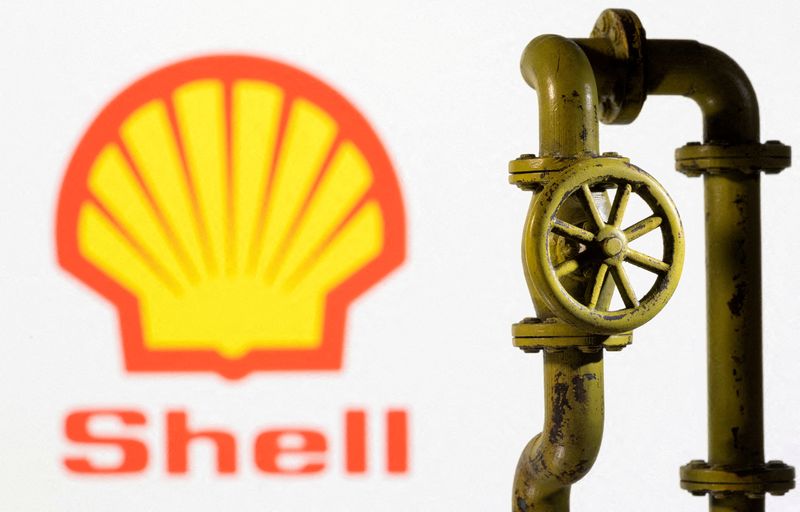(Reuters) -Shell stopped buying Russian crude on Tuesday and said it would phase out its involvement in all Russian hydrocarbons from oil to natural gas over Ukraine, becoming one of the first major Western oil companies to abandon Russia entirely.
While Russian crude and gas has been exempt so far from Western sanctions, oil soared above $139 a barrel on Monday to its highest since July 2008 as the United States and European allies began to consider banning Russian oil imports.
U.S. lawmakers have called for bans but President Joe Biden's administration has only sanctioned Russian oil tankers. Britain and Canada have also barred Russian vessels from landing at their ports in protest at Moscow's invasion of Ukraine.
Shell (LON:RDSa) apologised on Tuesday for buying Russian oil last week after it had said it would pull out of its Russian operations, including the Sakhalin 2 LNG plant in which it holds a 27.5% stake and which is operated by Gazprom (MCX:GAZP).
"We are acutely aware that our decision last week to purchase a cargo of Russian crude oil ... was not the right one and we are sorry," Chief Executive Officer Ben van Beurden said.
Shell bought a cargo of Russian crude oil from Swiss trader Trafigura at a record low of dated Brent minus $28.50 a barrel, traders said on Friday.
British rival BP (NYSE:BP) said last month it was abandoning its 19.75% stake in Russian oil giant Rosneft in an abrupt move that could cost it up to $25 billion.
TotalEnergies Chief Executive Patrick Pouyanne said on Monday that the French company had stopped buying oil from Russia, although one its landlocked refineries in Germany continued to receive Russian crude by pipeline.
Shell said it would change its crude oil supply chain to remove volumes from Russia "as fast as possible" and shut its service stations in Russia, as well as its aviation fuels and lubricants operations in the country.

The company said the supply chain change could take weeks to complete and would lead to reduced output from some of its refineries while its withdrawal from Russian petroleum products, pipeline gas and liquefied natural gas (LNG) would be phased.
The company also plans to end its involvement in the Nord Stream 2 Baltic gas pipeline linking Russia to Germany, which it helped finance as a part of a consortium.